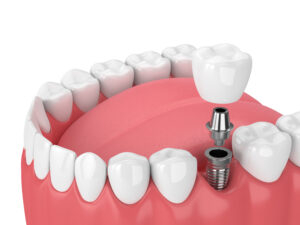By the team at Marina Dentistry, Marina del Rey, CA
You’ve probably heard that brushing and flossing protect your smile—but did you know they might also protect your heart? Mounting scientific evidence shows a clear connection between gum disease (periodontitis) and heart disease, revealing that what happens in your mouth doesn’t stay there.
At Marina Dentistry, Dr. Sameer Aljanedi and our experienced team emphasize preventive care not only to maintain healthy teeth and gums, but to protect your overall health. Let’s explore the connection between your oral hygiene and cardiovascular system—and how maintaining healthy gums can reduce your risk of serious systemic disease.
Understanding Gum Disease
Gum disease, or periodontal disease, is a chronic bacterial infection that affects the gums and supporting bone around your teeth. It usually starts with gingivitis, a mild form marked by red, swollen, or bleeding gums.
If untreated, gingivitis can progress to periodontitis, where bacteria spread deeper under the gumline, causing the gums to pull away from the teeth and destroying bone tissue. Eventually, this leads to loose teeth or tooth loss.
Common symptoms include:
- Bleeding gums while brushing or flossing
- Persistent bad breath
- Gum recession (teeth appear “longer”)
- Loose or shifting teeth
- Sore or swollen gums
While gum disease is a leading cause of tooth loss in adults, researchers have discovered that it also plays a role far beyond the mouth.
The Oral-Systemic Connection
For decades, dentists and physicians have noticed that patients with advanced gum disease often have higher rates of heart disease, stroke, and diabetes. Recent research helps explain why.
When gums are inflamed and infected, bacteria enter the bloodstream through tiny openings in the gum tissue. Once these oral bacteria circulate, they can:
- Trigger inflammation in blood vessel walls
- Contribute to plaque buildup (atherosclerosis)
- Increase blood clotting
- Raise the risk of heart attack and stroke
The American Heart Association and American Dental Association both recognize this relationship, noting that gum disease may worsen heart conditions or make them more difficult to manage.
“The mouth is a gateway to the body,” says Dr. Sameer Aljanedi.
“When gum tissue is chronically inflamed, it affects much more than your teeth—it can have measurable impacts on heart and vascular health.”
What the Research Shows
Several key studies over the past two decades have strengthened the evidence linking oral health to cardiovascular disease.
🔹 Harvard Health Study
A long-term study published by Harvard Medical School found that people with gum disease were twice as likely to have heart disease as those with healthy gums.
🔹 The European Society of Cardiology
Researchers found that chronic gum inflammation is associated with thickening of the carotid arteries, a warning sign of future heart problems.
🔹 The American Heart Association (AHA)
The AHA concluded that periodontal treatment can improve arterial health, reducing inflammatory markers and improving endothelial function (the inner lining of blood vessels).
🔹 CDC and NIH Findings
The Centers for Disease Control (CDC) estimates that nearly half of U.S. adults over 30 have some form of gum disease, making it a major public health issue with implications for cardiovascular and metabolic health.
How Inflammation Links the Mouth and the Heart
The key to understanding the oral-heart connection lies in inflammation—the body’s natural defense mechanism.
When oral bacteria from plaque cause gum infection, the body releases inflammatory proteins (cytokines) to fight the infection. But chronic inflammation doesn’t stay localized.
Over time, these inflammatory signals circulate through the bloodstream, contributing to:
- Arterial inflammation
- Narrowing and hardening of arteries (atherosclerosis)
- Increased risk of clot formation
This chronic inflammation is now considered one of the primary risk factors for both heart disease and stroke.
“We used to think of gum disease as a dental issue,” explains Dr. Aljanedi.
“Now we know it’s a systemic inflammatory condition that can affect everything from heart health to blood sugar regulation.”
Shared Risk Factors
Gum disease and heart disease share several underlying risk factors:
| Shared Risk Factor | Effect on Oral & Heart Health |
|---|---|
| Smoking | Major cause of gum and heart disease |
| Diabetes | Increases infection risk and inflammation |
| Poor diet | Promotes plaque buildup in teeth and arteries |
| Chronic stress | Elevates inflammation and weakens immune response |
| Genetics | Can predispose individuals to both conditions |
| Obesity & Sedentary Lifestyle | Linked to systemic inflammation and poor circulation |
This overlap means that lifestyle changes—like quitting smoking, improving diet, and managing stress—can simultaneously improve oral and cardiovascular health.
The Good News: Treating Gum Disease Helps Your Heart
The connection between gum health and heart disease is a two-way street—and the encouraging news is that treating gum disease can improve cardiovascular health.
Periodontal Therapy Reduces Inflammation
Deep cleaning treatments such as scaling and root planing remove bacterial buildup below the gumline, allowing gums to heal and inflammation to subside.
Improved Vascular Function
Clinical studies have shown that patients who undergo periodontal therapy experience improved blood vessel function and lower systemic inflammation markers (like C-reactive protein).
Better Blood Sugar and Blood Pressure Control
For patients with diabetes or hypertension, treating gum disease can help stabilize blood sugar levels and reduce vascular strain—supporting overall heart health.
“When we reduce inflammation in the mouth, we often see improvements in the whole body,” says Dr. Aljanedi.
“Healthy gums contribute to a healthier heart, brain, and immune system.”
Preventing Gum Disease: Small Steps, Big Impact
The best defense against gum-related heart risks is simple, consistent preventive care.
1. Brush Twice a Day
Use a soft-bristled toothbrush and fluoride toothpaste for at least two minutes, paying special attention to the gumline.
2. Floss Daily
Flossing removes plaque and food particles between teeth—areas brushing can’t reach.
3. Use Antimicrobial Mouth Rinse
An ADA-approved rinse helps reduce bacterial buildup and gingival inflammation.
4. Eat a Heart-Healthy Diet
Focus on whole foods, omega-3 fatty acids, and antioxidants to reduce systemic inflammation. Limit sugary and processed foods that feed oral bacteria.
5. Quit Smoking
Tobacco use doubles your risk for both gum and heart disease.
6. Schedule Regular Cleanings
Professional dental cleanings every 6 months (or more frequently if you have gum disease) allow your dentist to remove tartar buildup and detect issues early.
7. Manage Stress and Sleep
High stress levels can weaken the immune system, increasing susceptibility to both gum inflammation and heart disease.
What to Expect at Marina Dentistry
At Marina Dentistry, we take a whole-body approach to oral care. Our periodontal and preventive treatments include:
- Comprehensive gum health evaluations
- Deep cleaning (scaling and root planing) for active disease
- Laser-assisted gum therapy for gentle, effective bacterial removal
- Antibiotic therapy when necessary
- Regular periodontal maintenance to keep gums healthy long-term
Our team uses digital imaging and advanced diagnostics to detect gum inflammation early—before it impacts your heart health.
“We collaborate with your medical providers when needed,” explains Dr. Aljanedi.
“If a patient has cardiovascular issues, we customize their dental care plan to minimize systemic risk.”
FAQs About Gum Disease and Heart Health
1. Does treating gum disease reverse heart disease?
No, but it can lower your overall inflammation and reduce one major risk factor for cardiovascular problems.
2. Can healthy people still develop gum disease?
Yes. Even those with excellent oral hygiene can have a genetic predisposition or immune-related gum sensitivity. Regular dental checkups are key.
3. If I have heart disease, is it safe to get dental treatment?
Yes. In fact, it’s crucial. Always inform your dentist about your medical history and medications so we can coordinate care safely.
4. How often should I get dental cleanings if I have heart disease?
Typically every 3–4 months for periodontal maintenance, depending on your gum condition.
Why Westside LA Patients Trust Marina Dentistry
✅ Advanced Periodontal Expertise: Dr. Aljanedi has extensive experience in treating gum disease and restoring oral health.
✅ Modern Diagnostics: 3D imaging, digital scans, and laser-assisted cleanings for precision care.
✅ Whole-Body Focus: Preventive care that supports heart health and overall wellness.
✅ Gentle, Compassionate Approach: Comfort-focused treatment for patients with sensitive gums or dental anxiety.
✅ Convenient Location: Serving Marina del Rey, Venice, Playa del Rey, and Santa Monica.
“Healthy gums are the foundation of a healthy smile—and a healthy heart,” says Dr. Aljanedi.
“By caring for your mouth, you’re investing in your whole body.”
Take the First Step Toward a Healthier Smile—and Heart
Don’t ignore bleeding gums or persistent bad breath—these could be early signs of gum disease. Protect your smile and your heart health with expert care from Marina Dentistry.
Call (310) 578-5000 or request an appointment online today to schedule your comprehensive periodontal evaluation.
Together, we’ll help you achieve a healthier mouth, a brighter smile, and a stronger heart.




